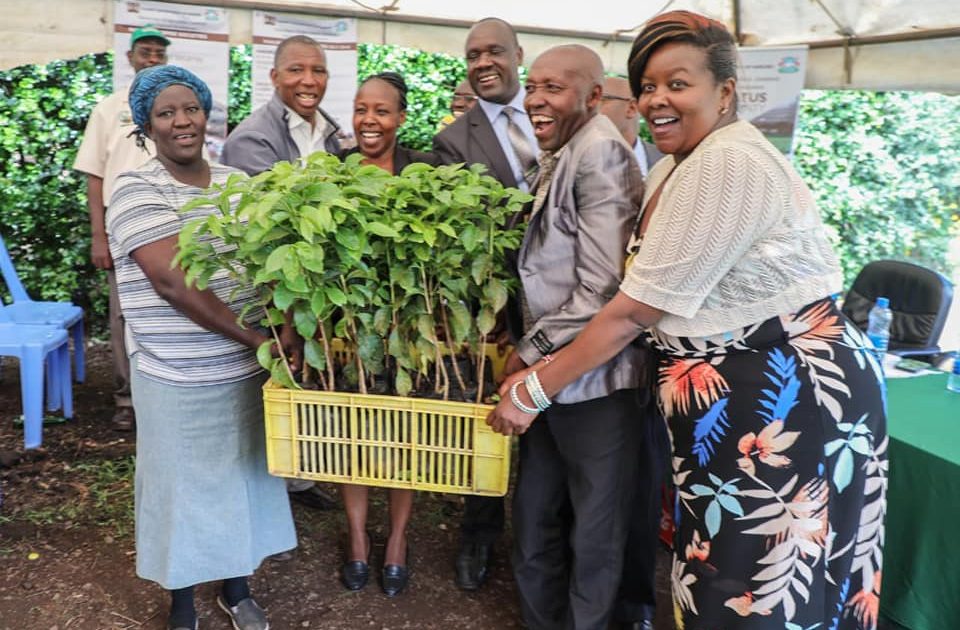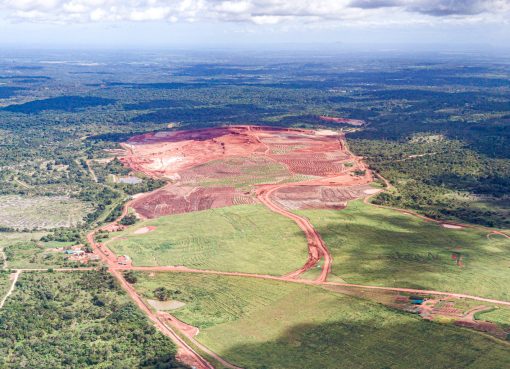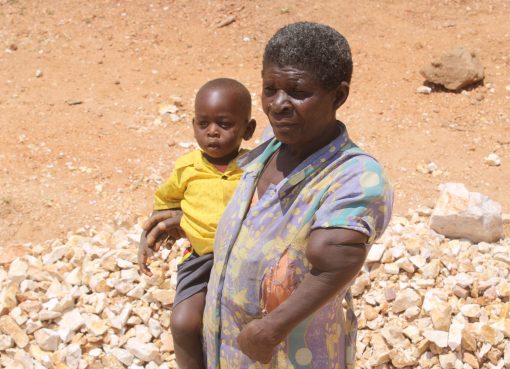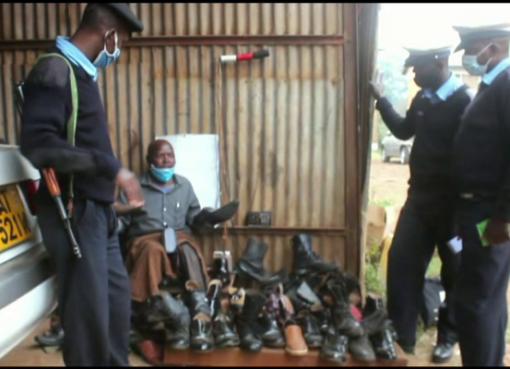Nakuru Governor Mr. Lee Kinyanjui has said reforms in the coffee sector need to prioritise value-addition in a major way, by processing, packaging, and branding the cash crop.
Kinyanjui observed that Kenya exports over 98 per cent of its coffee, adding that there was need to aggressively promote a big and viable domestic market for the commodity.
He indicated that while high quality Kenya specialty coffee is sought after around the world, quite a few Kenyans have actually tasted it and their taste buds were more acclimatised to the inferior quality imported brands.
“This is in big contrast to Ethiopia which consumes about 50 per cent of its locally produced crop. In the event that coffee prices decline, the coffee industry in Ethiopia continues to enjoy the patronage of its citizens,” the Governor noted.
Speaking when he launched distribution of 75,000 kilograms of bio fertiliser to farmers across the devolved unit, Kinyanjui stated that his administration has been collaborating with the Agriculture Food Authority’s (AFA) Coffee Directorate in a major drive to revive the growing of the cash crop on commercial scale in the region.
Kinyanjui stated that his administration’s ultimate goal was to streamline the subsector and have coffee branded in Nakuru destined for export markets.
The subsector he noted had the potential to expand and create job opportunities as coffee could fetch up to Sh1,000 (10 dollars) per kilogramme due to its high quality.
The governor added, “We need to draw references on the tourism sector where over-dependence on foreign markets almost killed our tourism industry. The moment Covid-19 pandemic broke out local household incomes and foreign exchange dipped.”
He noted that value addition to coffee would add a percentage of increased financial value to the produce and will have the effect of improving the incomes of the local farmers even if the international price of the commodity dipped.
“According to the Food Agriculture Organisation, the full potential of agriculture in terms of economic benefits is mainly hidden in the value addition component of the production process.
It is in this segment of the production chain that more jobs can be created, foreign exchange can be expanded as a result of export of finished products and the national output of the economy can be enhanced,” said the Governor.
The World Bank has projected that by 2030, the size of the food and agribusiness industry in Africa will reach a 1 trillion United States dollars’ worth. This will mainly have to do with value addition to the food-related produce coming from the farms.
According to Kinyanjui due to the growing popularity of the café culture, especially amongst the youth, demand for locally roasted and brewed coffee will increase which in turn will reduce the dependence of the coffee economy on consumers abroad.
“We also need to diversify our role in the coffee value chain by investing more in local roasting facilities to develop local brands in both the soluble and grounded coffee segments. This will improve producer prices which will make coffee more economically attractive to farmers,” he pointed out.
He noted that despite dwindling production of the cash crop in the country occasioned by mismanagement and unexploited potential in the sub sector coupled with land subdivision for real estate development, demand for Kenya’s coffee at global market remained high.
The county government, stated Kinyanjui had distributed 40,000 seedlings worth Sh6 million and three water tanks each with a capacity of 10,000 litres to Mutungati Coffee Farmers Cooperative in Bahati Sub-County.
He observed that the latest International Coffee Organisation report indicated that although Kenyan coffee is so little in the global scene, it is still fetching the highest price and was the most sought after.
“Our plan is to double coffee production in Nakuru in the next four years. We will set up a financial grant for the seven cooperatives in Bahati for them to increase production. The county administration under the aegis of Nakuru Coffee Forum is now working with several agro-chemical companies and seven coffee farmers co-operatives including Kiremba, Solai, Mandizi, Mutungati, Wikurie, Demu and Jumatatu.
He revealed that through a partnership with the Kenya Coffee Platform Association (KCPA) the county administration had tested soil samples of 1,200 coffee farmers in Bahati and Subukia sub-counties, and handed results to the owners.
“It is encouraging that the National government is putting in place subsidies and incentives to stop farmers from the 31 counties that grow coffee from uprooting the cash crop in favour of other foodstuffs. Good times are coming. We are debunking the myth that coffee is a Mount Kenya crop. Over 2,900 acres are under the crop in Subukia, Bahati and Rongai sub-counties with small scale farmers owning 666 acres and the rest in the hands of large estates,” stated Kinyanjui.
He advised farmers to seek proper analyses and recommendations for their soils for maximum production of coffee berries while preventing their soils from becoming acidic.
Kinyanjui hailed Mutungati Coffee Farmers’ Cooperative for increasing the cash crop’s production to 1,077 Metric tons from a mere 400 tons in a span of three years
The governor observed it had a huge untapped potential to grow Arabica coffee which is highly popular at domestic and global markets. The devolved unit has also brought on board 500 farmers who are now planting Ruiru and Mbatian coffee varieties which are resistant to disease.
“We are exploring possibilities of our younger generation being incorporated in the coffee value chain. They need to be trained on roasting coffee and sell our own branded finished products.
Our focus is to equip coffee growers especially the youth with skills on good agricultural practices to increase their average acreage by 50 acres this year and production from two kilogrammes to 12 kilogrammes per year per plant,” said Mr. Kinyanjui.
Except for Patel Farm in Solai which brands and exports its coffee to the European Union, the cash crop is mainly grown by small holder farmers in the County.
The coffee subsector in the county experienced a downward spiral occasioned by crumbling infrastructure, sheer mismanagement and neglect by previous administrations, poor marketing strategies and inferior agronomical practices.
He observed that coffee farmers in Nakuru have big farms for expansion unlike other traditional areas such as Nairobi and Central Kenya where real estate and industries have gobbled up huge chunks of land.
“Apart from financial and seedling support, we want to improve the production per coffee bush. The current yield of two kilogrammes they are producing is below par. With proper agronomical practices a bush has the potential to yield as high as twenty kilograms,’’ he said.
Agricultural experts contend that the County’s volcanic soil is ideal for coffee growing and the world’s favourite Arabica coffee flourishes in the region.
The Ministry of Agriculture has raised an alarm over declining coffee production from an all-time high of 128,862 tonnes in 1987/88 to the lowest production of 38,620 tonnes in 2016/17. The worrying trend comes at a time when demand from the international market is on the rise.
Statistics from the Ministry of Agriculture indicate that the country is facing a huge decline in coffee production from about 160,000 hectares to the current 114,000 hectares.
Kinyanjui said the County administration was working with the national government to come up with a harmonised policy that will address factors that have been impending revival of the sector. He listed them as poor infrastructure, high transport fees to the market, and middlemen who hire people to steal the beans in the stores and the farms.
“Coffee still retains a lot of potential in the county, and currently, there are nine washing stations where farmers take their cherries for processing. We are doing everything possible to ensure that farmers embrace the crop because they are likely to earn good money” the Governor pointed out.
By Anne Mwale





